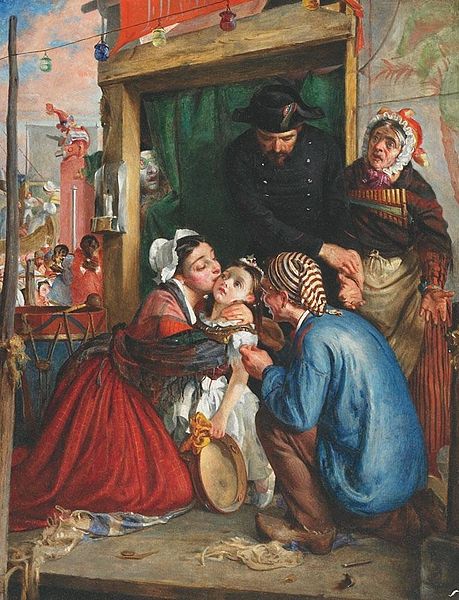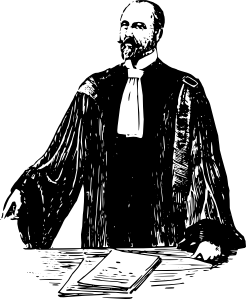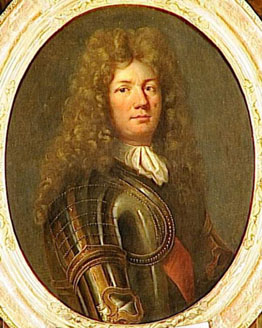Regulating the Law: Les Notaires
From Roads to the Enlightenment by Franceau Robb
What is a state? Do we count merely the agencies under the state’s purview and the activities that directly relate to the state? Do we take Weber’s definition and only look at organizations with a monopoly of force over an area? While these are seemingly abstract questions, they often have a very real force. We live in an age where states posture as ‘small’ while creating massive militaries and all encompassing surveillance apparatuses. The trick is that many of these groups are not a part of the ‘state’, they are contractors. But is a private firm which only takes contracts for the government, which takes orders from and is fully regulated by the government, truly a private organization?
Such a question faces one when surveying the monarchy of Louis XIII. While the reputation de Tocqueville gave him as a proto-liberal remains with him, even three centuries later. While this reputation is not wholly deserved, he did create one general innovation which has remained with the modern state to this day. He created a regularized interaction between the market and the state, which can be seen by the creation of a schooling system and set of regulations monitoring government-approved lawyers, especially the Notaire profession.
The Notaire, or notary is a lawyer who decides civil cases and is hired to write contracts
Since Louis XI, entering the law had been a relatively simple process: a man seeks the reference of two lawyers already in the profession, and once those references were processed, the man was allowed to buy a lawyer’s certificate and practice as a lawyer. Since judges had seniority requirements and had to be appointed by Minister of the Law, this meant that court cases were generally self-regulating (though the story of the poorly versed young lawyer who fails his clients existed all over France, and bribery was rather common). However, the notarial profession, which dealt exclusively with non-contentious cases (IE, the writing of contracts between clients or between an employer and employee) was rife with corruption. Paris was teeming with forgers providing fraudulent certificates, and even beyond this, it was an easy task for young aristocrats to find two references.
Louis XII’s policy of selling venal (IE inherited) offices just worsened the issue. Now the son of lawyer could enter the law on a whim, and many aristocrats bought venal titles in order to speculate on the market for government positions. Thus, while 10,000 positions existed nominally, only 4,574 positions were filled when Louis XIII came into power. It cannot be precisely determined whether the unfilled positions were taken up by speculators or aristocrats who died or were exiled during the Fronde, but the Trial of Jaccome de Montserrat, a serf and a soldier who had stolen the certificate of his officer and went on to practice law in southern France, drew a great deal of attention to the issue of fraudulent lawyers.
While the explosion of lawyerly positions had benefited the north of France a great deal, with the average Fleming living within four kilometers of a courthouse, but the south and the colonies suffered a massive deal from the growth in fraudulent lawyers certificates. In a region that was just barely shifting away from serfdom and manor based economics, the mass of easily bribed and untrained notaires led to thousands of peasants finding themselves in ‘short term’ contracts which placed them in sharecropping conditions. The lack of a legal infrastructure to challenge these contracts meant that many of these contracts remained dominant, and that Henri II’s major policy project of destroying serfdom failed spectacularly in the French south.
Without a sufficient legal infrastructure to maintain Henri’s policy of free labor, serfdom reasserted itself in many areas of the French periphery
This was more than a minor issue; it both invalidated Louis’ focus on the south (via a series of scandals involving the bribery or fraud of notaires) and weakened Louis’ attempts to develop France via market institutions. However it intersected with a series of entrenched policies which made ‘fixing’ it problematic at best. Louis could not undo the venality of offices anymore than he could abolish the aristocracy, office venality affected tens of thousands of men at the heart of the French kingdom’s policymaking apparatus. Nor could Louis completely reform the way that the lawyerly profession functioned, for many of its aspects involved laws which regulated the trades around all of France. Furthermore, the decentralization of power meant that any reform of the law had to pass in every municipal province (especially the southern provinces of Toulouse, Bordeaux, Aix-Marseilles, and Nice) or else it would be invalidated.
Due to this, Louis’ overhaul of the legal system took more than a decade, with the Enforcement act first coming to the Paris parliament in 1658, and the Legal Testing Act passing in the Nice parliament in 1673. However, the methods by which Louis regularized the legal profession is key because it shows the means by which he reformed the Army, Navy, and the Clergy. And while Louis’ reform of the army and clergy are more often remembered (due to the notion that military history is a far more interesting concept and due to the Janesist Controversy of the 1680s), Louis’ regulation of the law is far more important because many aspects of it remain to this day. In fact, the Legal Testing Act represents the first attempt to set up a standardized testing system for the legal profession in Europe, a tradition which remains with us via the French CAPA, the Louisian JBE and the Quebecois ALE.
The creation of a legal exam in order to ensure the skill of would-be lawyers had its origins in 17th century necessity but has remained a key part of the legal profession into the 20th century
Louis’ personal experience of the Chinese Imperial Examination system irrevocably changed his view on French policy. Trained in classic Aristotelian philosophy, Louis saw the Imperial Exam as a far more valid form of ‘aristocratic government’ (which originally meant rule by the best) than the form he had experienced in France. His personal anxiety over his place as a pretender and the fact that, due to his birth, he had been given both (what he felt was) unjust importance and an unjust punishment was wholly validated by the existence of (what he saw as) a perfectly meritocratic system. His journal notes show a deeply empathic response to his discovery of the exam system: “Had it been that Henri and I had merely been tested for our abilities! So much suffering, so much bloodshed, would have been averted by such a test existing in my home land.” Louis showed that he was still thinking on this topic, when he brought up the idea of an examination system to solve the Notaire Crisis during the 1650s: “To the far east, the state of China recruits its men of letters via a system of examinations. I believe that this is a more effective, and less expensive, solution than the common idea of a school designed to train men of the law. It provides its own enforcement, and rather than relying on an expensive set of schools to train our notaires, it will instead push the subjects of France to find ways to teach themselves the elements of our legal code.”
This testing system was revolutionary, but it would not be implemented until the early 1670s. The first set of solutions to legal fraud and bribery was a set of regulating courts which would verify that a legal title was being used. On a bi-annual basis, lawyers would have to check in to show the trials they had served in, which would include notes and stamps from the purveiling court. This law was relaxed in the colonies, but it was easily passed, and by 1667 the number of empty legal titles had been nearly eliminated.
Louis was then able to create a certification exam which was slowly passed through the municipal provinces, which would test lawyers-to-be on Classical Philosophy, Logic & Rhetoric, and the legal precedents of France. This test was required before a student could buy a legal certificate, and it ensured a level of quality among all branches of law that was not previously there. It also allowed for Louis to legislate the expansion of markets deep into southern France. Whereas the number of notaires had only allowed for a strong market system in the north of France (with the villages of the south having annual or bi-annual markets), the new system allowed for a massive expansion of intra-national trade. Propelled first by the olive oil boom and then by the trade of wares and finished products, the regulation of the legal profession can be linked directly to the development of market structures in Occitania.
The development of markets in France, 1640-1690. Red shows annual fairs, yellow biannual, green seasonal, and blue signifies weekly fairs.
Louis’ reaction to the exam system and his constant advocacy for it (extending to his reforms of the military and the clergy) show an interesting aspect of his personality. In his journal entries there was little arrogance, and little besides hatred for his birthright as pretender to Henri. There is none of the talk of divine right which would play such a large part in the reigns of Henri II and Henri III. While the childhood trauma of being personally responsible for a potential civil war led to an insecure and aggrandizing personality in Henri, in Louis it led to a deep humility and a feeling that neither he nor anyone deserved, by right of birth, the title of ‘king’. This personality trait gets to the heart of what made Louis a different sort of monarch than any of his predecessors, successors, or peers. While other kings spoke of their divine right as a means to conduct absolutism, Louis established a different sort of absolutism, which rested rather on the idea that no inherited title was intrinsically valid. This shows both why he was christened the arch-despot by the Hapsburgs and north Germans while being met as a liberator by the English revolutionaries and 18th century liberals.











